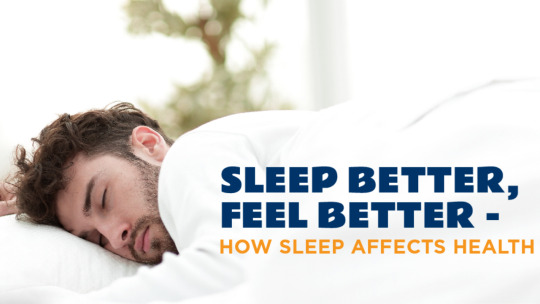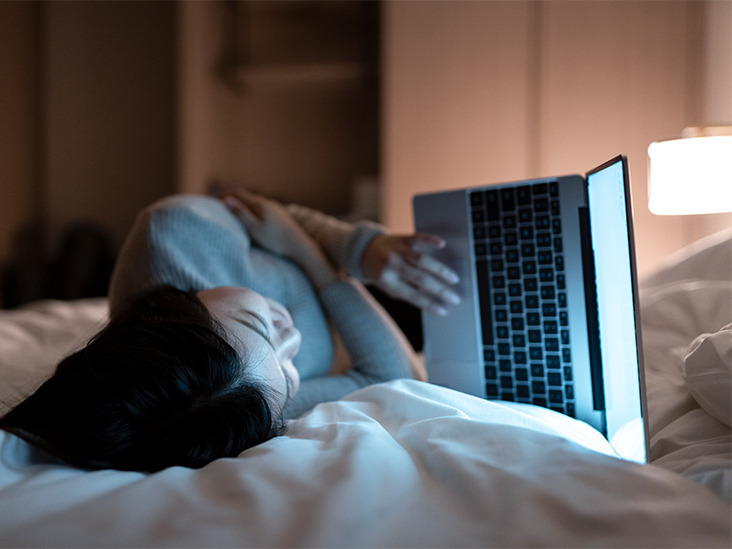Tips For Better Sleep Habits
Getting a good night's sleep might seem like an impossible goal when you're awake at 3am, but you have much more control over your sleep quality than you probably think. Just as staying awake often depends on the quality of your sleep at night, insomnia remedies are often part of everyday life.
Good sleep has a direct impact on your mental and physical health. Deficiency can have a serious impact on daytime energy levels, productivity, emotional balance, and even body weight. I struggle to get the sleep I need.
Unhealthy daytime habits and lifestyle choices can cause you toss and turn at night, affecting your mood, brain and heart health, immune system, creativity, vitality and weight.
Tip 1: Synchronize with your body's natural sleep/wake cycle
Body Synchronizing with your natural sleep/wake cycle, or circadian rhythm, is one of the most important strategies for better sleep. If you maintain a regular sleep/wake cycle, even if you change your sleep schedule by just an hour or two, you'll feel much more refreshed and energized than sleeping for the same amount of time at different times. Go to bed at the same time every day and wake up at the same time. This adjusts your body clock and optimizes sleep quality. Choose a bedtime when you usually feel tired to avoid tossing and turning. Of course, once you get enough sleep, you need to wake up without an alarm clock. If you want an alarm clock, you should go to bed earlier. Don't sleep too late. even on weekends. The more different your sleep schedules are on weekends and weekdays, the worse symptoms like jet lag get. If you have to stay up late, take a nap instead of napping. In this way, sleep deprivation can be reduced without disturbing the natural sleep-wake cycle. Nap. Naps are a good way to make up for lost sleep, but if you're having trouble falling asleep or having trouble falling asleep at night, naps can make things worse. Limit naps to 15 to 20 minutes.
Start the day with a healthy breakfast. Among many other health benefits, a balanced breakfast helps synchronize your body clock by letting your body know it's time to wake up and be active. Skipping breakfast, on the other hand, can slow blood sugar rhythms, lower energy, increase stress, and interfere with sleep. If you feel sleepy before bed, get off the couch and do something lightly stimulating, like walking. B. Washing the dishes, calling friends, and getting dressed for the next day. Loss of sleep can cause you to wake up late at night and find it hard to fall asleep again.
Tip 2: Control Your Light Exposure
Melatonin is a naturally occurring hormone that is regulated by light exposure and helps regulate your sleep-wake cycle. When it's dark, your brain produces more melatonin, which makes you sleepy, but when it's bright, less melatonin makes you more alert. However, many aspects of modern life can alter the body's melatonin production and alter circadian rhythms. will be The closer to waking, the better. For example, drink coffee outside or have breakfast by a sunny window. The light in your face helps you wake up. Spend more time outdoors in the sun. Take work breaks outside in the sun, exercise outside, or walk your dog during the day instead of at night. Let as much natural light into your home or office as possible. Try leaving curtains or blinds open during the day and moving your desk closer to the window. Use phototherapy box if needed. This simulates sunlight and is especially useful on short winter days. Nighttime Avoid bright screens for 1-2 hours after bedtime. Blue light emitted from mobile phones, tablets, computers, or TVs is particularly troublesome. You can minimize the effect by using a device with a smaller screen, lowering the brightness, or using light-modifying software such as f.lux. Say no to late night TV. Not only does the light of television suppress melatonin, but many programs are more stimulating than relaxing. Try listening to music or audiobooks instead. Do not read on backlight devices. Backlit tablets are more distracting than e-readers that don't have their own light source.
Darken the room when it's time to go to bed. Use thick curtains or blinds to block light from windows, or try a sleep mask. Also, don't forget to cover any electronic devices that emit light.
Please turn off the lights when you wake up at night. If you need light to navigate safely, install a dim nightlight in your hallway or bathroom, or use a small flashlight. This makes it easier to fall asleep again.
Tip 3: Exercise During the Day
People who exercise regularly sleep better at night and feel less tired during the day. Regular exercise also improves symptoms of insomnia and sleep apnea, and increases time spent in the deep restorative phases of sleep. The more active you are, the greater the effect on sleep. But even light exercise, like walking for 10 minutes a day, can help you sleep better. It may take several months of regular activity to feel the full sleep-promoting effects. So be patient and focus on building lasting training habits. Timing Exercise for Better Sleep Exercise boosts your metabolism, raises your body temperature, and stimulates hormones such as cortisol. It's fine if you exercise in the morning or afternoon, but being too close to your bed can interfere with your sleep.
Moderate to vigorous exercise at least 3 hours before bed. If you still can't sleep, postpone your workout even earlier. Relaxing, gentle exercise, such as yoga or light stretching in the evening, can promote sleep. sleep quality.
Eat a heart-healthy diet. It's your overall diet, not specific foods, that makes the biggest difference to your sleep quality and overall health. A Mediterranean diet high in vegetables, fruits and healthy fats and limited in red meat helps you fall asleep faster and sleep longer. Cut down on high-sugar foods and refined carbs. Eating plenty of sugar and refined carbohydrates during the day, such as white bread, white rice, and pasta, can help you wake up at night and awaken from a deep, restful sleep. Limit caffeine and nicotine. You may be surprised to learn that caffeine can cause sleep disturbances for up to 10-12 hours after consumption. Similarly, smoking is another stimulant that can interfere with sleep, especially if smoked just before bedtime.
Avoid large meals at night. Eat dinner early and avoid heavy, heavy meals within two hours of going to bed. Spicy and acidic foods can cause stomach upset and heartburn. Avoid alcohol before bed. A nightcap can help you relax, but going out disrupts your sleep cycle. Don't drink too much at night. Drinking lots of fluids can lead to frequent trips to the bathroom during the night.
Tip 4: Learn how to fall asleep again
It may be difficult, but try not to stress about not being able to sleep. To get out of your head, focus on body sensations or practice breathing exercises. Breathe in and then slowly exhale while saying or thinking the word "ah". Breathe in again and repeat.
Make relaxation your goal, not sleep. If you're having trouble falling asleep, try relaxation techniques that you can do without getting out of bed, such as visualization, progressive muscle relaxation, and meditation. Relaxation can help rejuvenate your body, although it won't replace sleep





.png)
Comments
Post a Comment